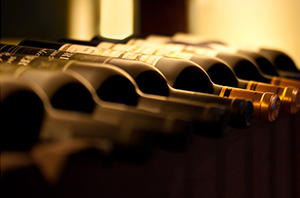
13 January 2025 | PoreFiltration
For packaged wine to be successfully bottled, it must be microbiologically stable, visually clear, and free of particulates.
For packaged wine to be successfully bottled, it must be microbiologically stable, visually clear, and free of particulates.
Coarse FiltrationThis initial clarification step occurs after fermentation when the wine is cloudy but translucent. The aim is to remove larger particles, such as yeast cells, tartaric acid crystals, or wine fining agents. Traditionally, diatomaceous earth filtration or filter sheets were used, but advancements now include lenticular/stacked disc solutions, cross-flow filtration, and cartridge filtration.
Standardisation During Coarse Filtration
The standardisation or pre-stabilisation process addresses microbial stabilisation, clarity, and potential filter blockage before final packaging. This step ensures stability during transport, protects the wine’s essential characteristics, and reduces the levels of sulfur dioxide required.
Filterability Index (FI) Testing
Packaging facilities often perform Filterability Index (FI) testing to assess the wine’s filter-blocking potential before offloading it from road tankers. FI testing involves passing wine through a 0.45μm filter disc at 2barg pressure, measuring filtration times for 200ml and 400ml. A low FI value (<20) indicates low blocking potential, while a high FI value (>20) signals likely blockage issues.
Why It Matters
Coarse filtration safeguards the wine’s quality by removing particulates and setting the foundation for subsequent filtration stages. This step is crucial in ensuring wine stability and maintaining its sensory appeal.
Fine Filtration
At this stage, the wine is clear and bright. The focus is on reducing yeasts and bacteria while preparing the wine for sterile filtration.
Key Benefits of Fine Filtration:
1. Clarity Enhancement: Fine filtration achieves the brilliance and clarity that enhances the wine’s visual appeal.
2. Prefilters for Particle Retention: Prefilters capture fine particulate matter and protect final membrane filters. While polypropylene (PP) filters work well for particle retention, glass fibre (GF) filters are often preferred due to their natural charge and finer fibre diameters, extending membrane filter life.
3. Microbial Retention: In some cases, prefilters also demonstrate microbial retention, ensuring additional protection for the wine.
Fine filtration is about more than achieving clarity; it is essential for protecting the wine’s integrity and enhancing its quality. Proper prefiltration ensures cost-efficient and reliable filtration processes, preparing the wine for the final step.
Sterile Filtration
The final stage of filtration ensures microbial stability just before bottling. Membrane filtration securely removes spoilage organisms that could cause turbidity, off-flavours, or microbiological issues post-bottling.
Red vs. White Wine Filtration
• Red Wine: Naturally higher tannin levels and lower sugar content make it less susceptible to microbial contamination. A 0.65μm membrane filter is typically sufficient.
• White Wine: Due to higher contamination risks, a finer 0.45μm membrane filter is recommended.
Validation and Integrity Testing
Membrane filters must:
- Retain spoilage organisms (e.g., Saccharomyces, Brettanomyces, Acetobacter, Oenococcus).
- Preserve wine characteristics such as sweetness, acidity, tannin, alcohol, and body.
- Be integrity testable and compatible with chemical sanitisation, hot water, or steam sterilisation.
Why It’s Important
Sterile filtration not only ensures microbial stability but also safeguards the sensory qualities of the wine. This step guarantees the highest product quality and safety before the wine reaches the bottle.
General Guidelines
• Use a 0.65μm membrane filter for red wines.
• Use a 0.45μm membrane filter for white wines.
For further information on wine filtration solutions, contact our experts. We’re here to help you make the best choice for your filtration needs.